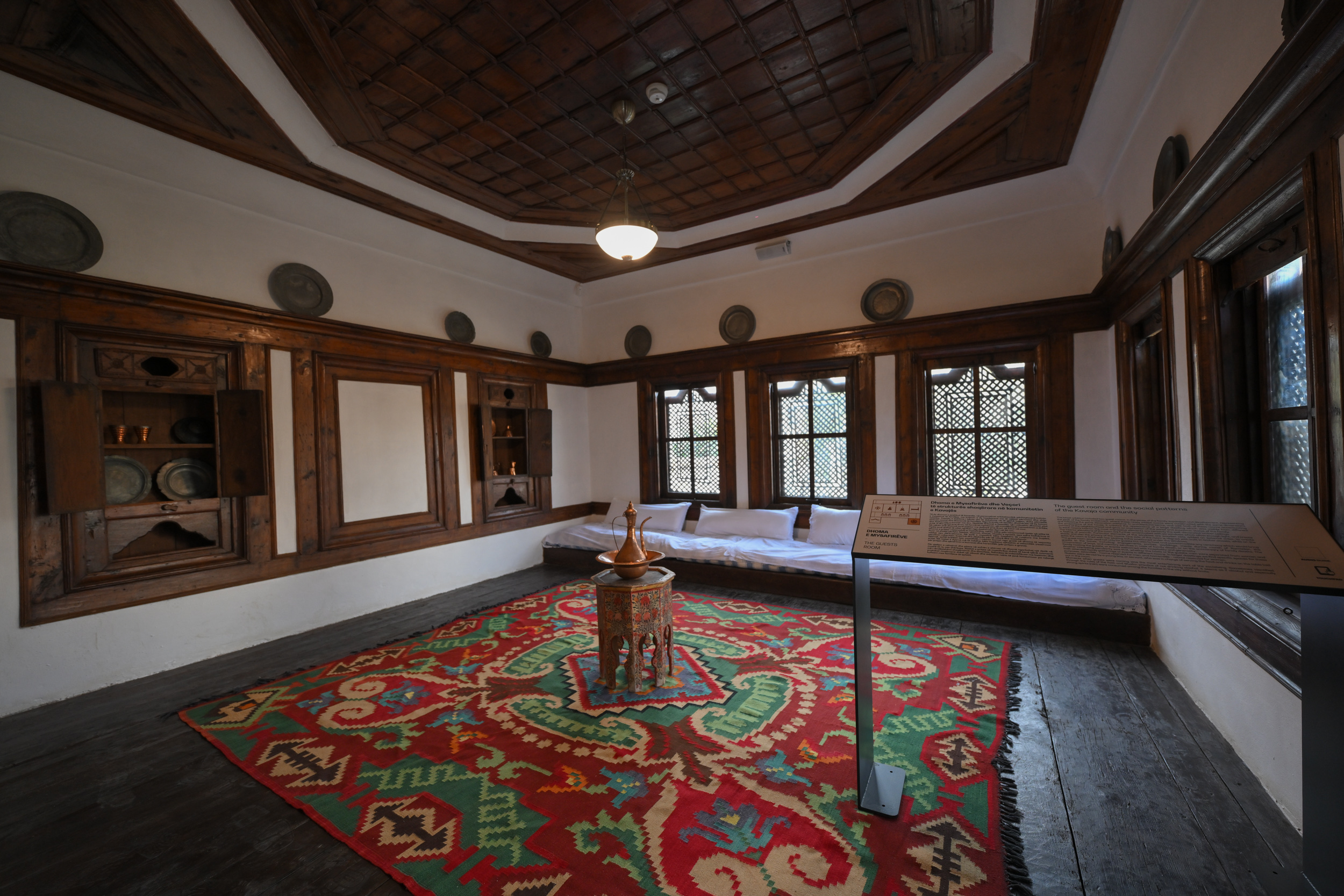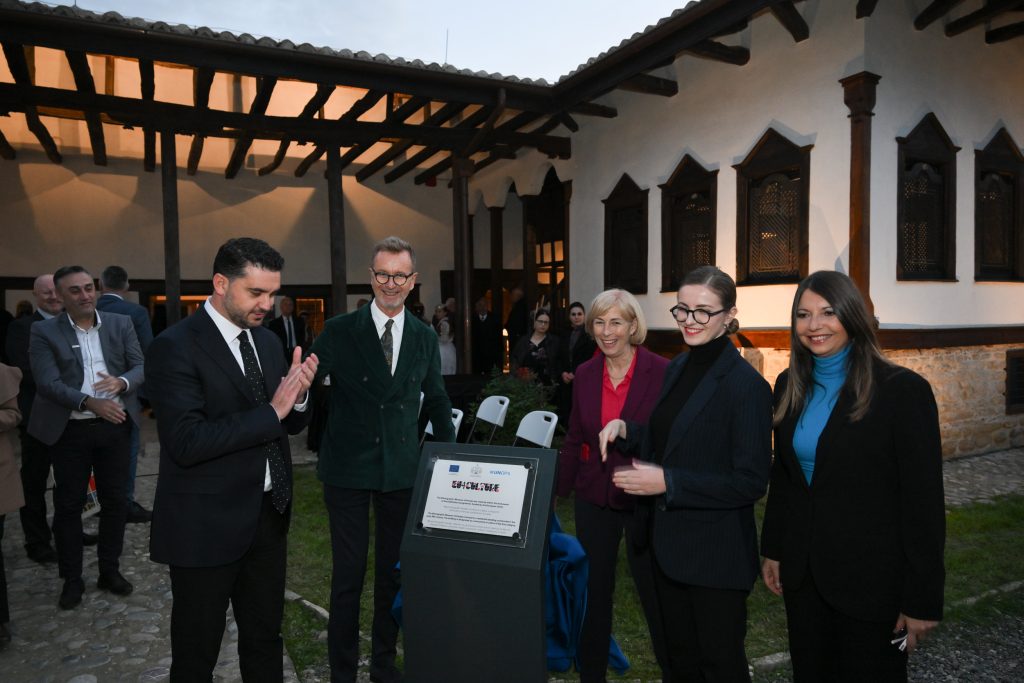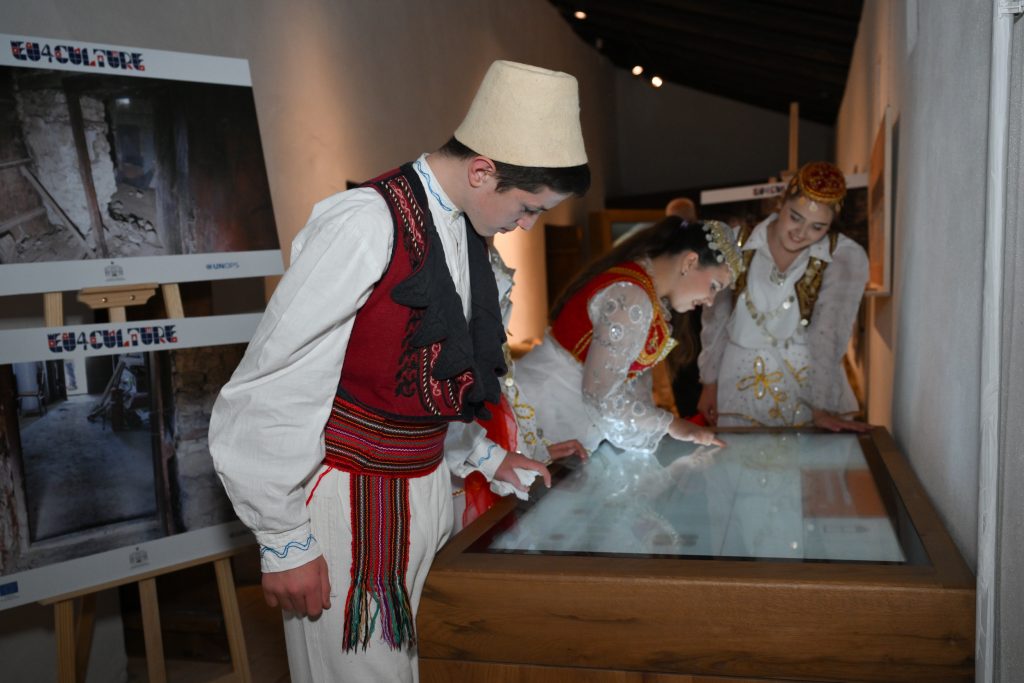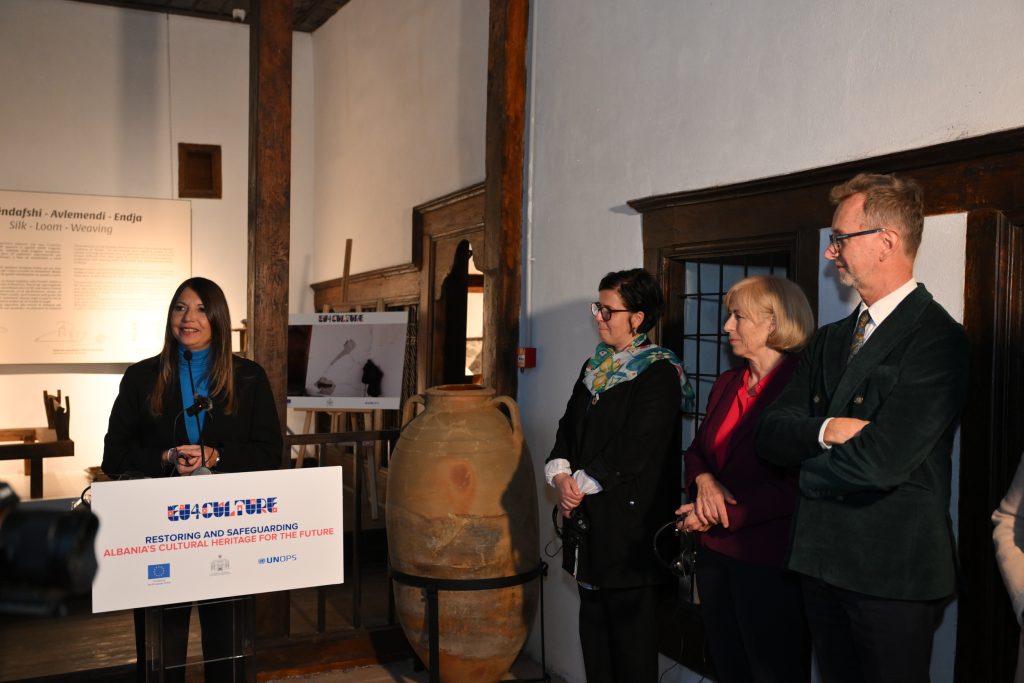Kavaja Ethnographic Museum Reopens After Extensive Restoration

The Ethnographic Museum of Kavaja has reopened following elaborate restoration and museum works conducted by the EU-funded EU4Culture programme, implemented by UNOPS in partnership with Albania’s Ministry of Economy, Culture and Innovation.

The two-year intervention, with a budget exceeding one million euros, encompassed the restoration of the building damaged during the 2019 earthquake, as well as museum redesign and multimedia. Visitors can now explore the collection through new multimedia features, including a virtual dressing room, augmented reality experiences, interactive games, video and audio narratives. These additions complement the traditional artefact displays while enhancing the educational experience.
The museum building, constructed in 1800, was converted to a museum in 1971. Today, the museum houses over 800 artifacts of various types, each contributing to its educational mission. The collection provides visitors with an authentic window into the daily lives of past generations, documenting their routines, family celebrations, and community gatherings.

The inauguration ceremony brought together distinguished guests, including H.E. EU Ambassador to Albania, Mr Silvio Gonzato; Deputy Minister of Economy, Culture and Innovation in Albania, Ms Lira Pipa, H.E. United Nations Resident Coordinator in Albania, Ms Fiona McCluney; UNOPS Senior Programme Manager, Ms Pamela Lama; Mayor of Kavaja, Mr Fisnik Qosja.
“Kudos to the great cooperation between local and central authorities in Kavaja, with EU and UNOPS support, to rekindle the sparkle of the Kavaja Ethnographic Museum! A place that speaks to all generations and brings together an entire community! Our EU4Culture programme is helping Albania to preserve and celebrate its heritage. It is also building platforms for interaction between people, cultures and religions,” said the EU Ambassador Silvio Gonzato.
“The Ethnographic Museum of Kavaja has been transformed into a living space that invites visitors to experience Albania’s rich history in a new and engaging way, becoming an attractive destination for domestic and international tourists while strengthening the local economy and creating new income generation opportunities for communities. This transformation was made possible through the generous support of the European Union and outstanding collaboration with the Government of Albania, particularly the Ministry of Economy, Culture and Innovation,” noted Ms Pamela Lama, UNOPS/EU4Culture Senior Programme Manager.

“As an immediate response, in 2019, 810 highly important artifacts of the Museum were secured in safe boxes and stored, effectively leading to the museum’s closure. Fortunately, in collaboration with UNOPS, the largest assistance program for the rehabilitation of our cultural heritage, today this Museum of extraordinary value opens its doors to all visitors. Following the example of the complete renovation of the Vilë-Bashtova Castle, another project bearing the UNOPS mark, the Kavajë Ethnographic Museum will also be transformed into another cultural and tourist magnet,” stated Ms. Lira Pipa, Deputy Minister of Economy, Culture and Innovation in Albania.





